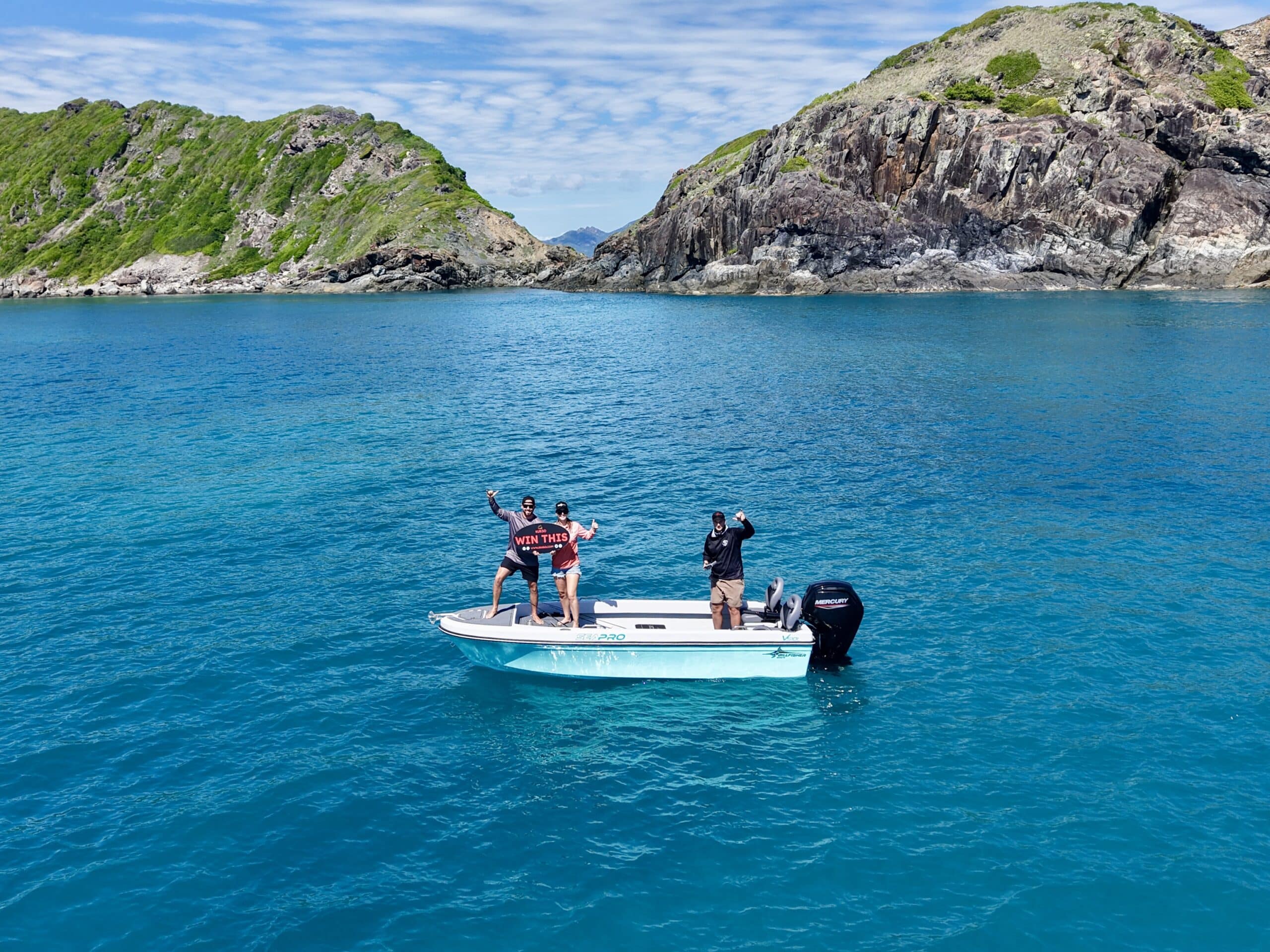
Free monthly entries to ALL giveaways
+1 every month
+5 every month
+10 every month
5%
125
150
350
100
100
50
Cancel membership anytime
Terms apply
apply

Written by
Darcie Sands
Published
July 3, 2025
Saltwater might be great for fishing, diving, and living the dream — but it’s brutal on boats. Corrosion, wear, and electrical gremlins show up faster than you can say “flush the motor.” If you want your boat to stay safe, reliable, and ready for every offshore mission, a bit of regular maintenance is non-negotiable.
Here’s how to properly care for your boat before, during, and after your saltwater adventures — so it keeps performing trip after trip.
Salt is sneaky. If you don’t wash it off, it’ll eat your boat from the inside out.
Use fresh water to rinse the hull, trailer, motor, and gear after every saltwater trip
Don’t forget hatches, under the gunnels, rod holders, and live wells
Use a light soap or salt-removing wash for stubborn spots
Pro tip: A hose with a spray nozzle and a bit of discipline goes a long way — make rinsing part of your routine, not an afterthought.
Because one day, it just might.
Use a flushing kit or earmuffs to run fresh water through the engine for 5–10 minutes
For outboards with a flush port, follow the manufacturer’s steps (some say not to run the motor)
Let the engine run until it’s warm enough to burn off moisture
Pro tip: Trim the motor up and down a few times post-flush to drain trapped water from the leg.
Sacrificial anodes are your corrosion defence — once they’re gone, your metal bits are next.
Found on outboards, trim tabs, hulls, and stern gear
Replace when they’re more than 50% corroded or heavily pitted
Always use marine-grade anodes (zinc, aluminium, or magnesium depending on your water type)
Pro tip: Aluminium anodes are the go-to for saltwater and trailer boats — they last longer and protect better.
Keep things moving — and stop salt from turning your gear into rusted statues.
Grease the prop shaft, steering components, throttle linkages, trailer rollers, and winch gears
Use marine grease — it’s waterproof and designed to handle harsh environments
Don’t forget your wheel bearings — especially on the trailer
Pro tip: Carry a grease gun onboard or in the ute — you’ll thank yourself before (and after) that long drive home.
Saltwater and electrics don’t get along — treat your battery right and avoid headaches.
Charge after every trip, even if you didn’t use much power
Check terminals for corrosion and clean them with baking soda and water if needed
Use dielectric grease on contacts to protect against moisture and salt creep
Pro tip: Add a voltmeter or battery monitor so you can spot issues before you’re stranded offshore.
It’s easy to focus on the boat and forget the thing that gets it there.
Rinse the whole trailer, especially the axles, brakes, springs, and winch
Check for rust, loose bolts, worn rollers, and light issues
Replace any rusty parts before they fail — trailers cop it hard in salt
Pro tip: Spraying your trailer with lanolin or a corrosion inhibitor can help extend its life significantly.
Bad fuel = bad day on the water.
Store your boat with a full tank and a fuel stabiliser to prevent condensation and breakdown
Replace fuel filters regularly — every 50–100 hours is a good rule of thumb
Check hoses for cracks or soft spots, and use ethanol-free fuel where possible
Pro tip: Carry a spare fuel filter and know how to swap it on the water — just in case.
GPS, sounders, radios — they’re expensive, and salt loves to fry them.
Cover them when not in use and avoid direct sun exposure when parked
Use a microfibre cloth and a light electronics cleaner for screens
Keep connections dry and use dielectric grease on plugs and terminals
Pro tip: Disconnect batteries or use a master kill switch when storing the boat to avoid slow-drain damage.
Don’t leave it all for the end of the season.
Run your motor at home every couple of weeks if you’re not using it
Check bilge pumps, lights, steering, and safety gear often
Inspect your hull for cracks, barnacles, or hidden damage
Pro tip: Keep a checklist on your phone or in your shed — knock it off before and after every trip.
DIY is great, but pros can spot things you’ll miss.
Schedule an annual service with a marine mechanic — especially before big offshore runs
They’ll check the impeller, thermostat, gear oil, ignition, and more
Keep your service history documented — it helps with resale and peace of mind
Pro tip: If you do big hours or run hard offshore often, consider a 6-monthly check-up.
Saltwater boating is some of the best fun you can have — but it’s brutal on gear if you don’t stay on top of it. With regular rinsing, flushing, greasing, and a bit of mechanical love, your boat will stay in top shape and ready to chase fish, explore islands, or just blast across the blue without a hitch.
So treat your boat like it’s part of the crew — and it’ll keep coming back strong, trip after trip.